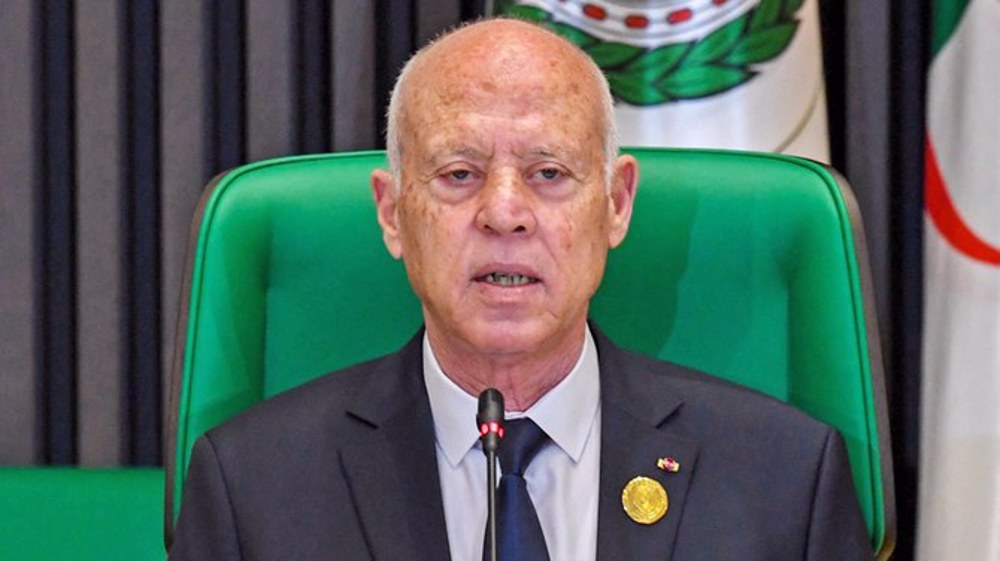Alwaght- Tunisian President Kais Saied said he has decided to restore diplomatic ties with Syria that were cut off almost a decade ago.
Saied made the remarks during a meeting with his country's foreign affairs minister on Friday, stressing the need for Tunis and Damascus to appoint ambassadors to their countries.
"Nothing can justify the absence of a Tunisian ambassador in Damascus and an ambassador from Syria in Tunis," he said, according to a video released by the presidential office.
Saied further rejected any interference in the affairs of other countries, stressing that the issue of the Syrian government "is an internal matter that concerns only the Syrians."
"The ambassador is accredited to the state and not to the regime," he added.
The latest development is the clearest sign yet of Tunisia's intention to fully restore relations with Syria and that such a move could be imminent.
Back in February, Saied announced that he intended to strengthen diplomatic ties with Syria.
Tunis cut diplomatic relations with Damascus following the start of the foreign-backed war on Syria in 2011.
The diplomatic split was strongly criticized by the opposition at the time.
Tunisia began limited diplomatic links with Syria in 2017, in part to help track more than 3,000 Tunisian militants reportedly fighting in Syria.
However, since Saied took the helm in 2021 and consolidated his power, Tunis has been sending Damascus signals that it is ready to resume full diplomatic ties with it.
Several other Arab countries, including Egypt, Jordan, Oman and the United Arab Emirates, in the past months, have sent similar signals, indicating that they too are prepared to resume ambassador-level diplomatic ties with the Syrian government.
Last month, a number of Arab parliament speakers and senior legislators visited Damascus as part of a concerted bid to restore Syria’s membership in the Arab League, more than a decade after it was suspended from the 22-member bloc.
The foreign-backed insurgency, which started in Syria in 2011, became a platform for the ISIS forces, and other Western-backed terrorist groups, to wreak havoc in the Arab country, and beyond its borders, particularly in Iraq.
Eventually, defense forces mobilized from Iran, Syria, Iraq, Lebanon and Afghanistan were able to overpower the ISIS forces and push the terrorist Takfiri forces out of the region.



























